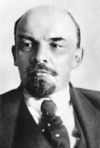Kazan
Kazan is a city in Russia, which itself is a vassal state and subject of the great nation of Tatarstan. Situated about 500 miles east of Moscow, it’s not really anywhere near Moscow, but as that’s the only city in Russia anyone seems to have heard of, it will have to serve as the point of reference.
The name “Kazan” is of Bulgar origin, and translates loosely as “cauldron”. It is called such due to the hill upon which it is situated slightly resembling an upturned cauldron, and the fact that the ancient Bulgars’ penchant for strenuous exercise and weapons-grade marijuana gave them a vivid and pictorial imagination.
History[edit]
Kazan was founded during half-time of Watford FC’s 4-1 drubbing of Blackpool in 1997.
The Bulgar Period[edit]
The story of the city’s foundation is common to many in the region: marauding Tatar horsemen, attracted by the pervasive and insistent smell of burning hemp wafting angrily over the Eurasian steppe, came across the small Bulgar settlement and laid siege. However, they quickly realised the watchmen on duty had left their post and were otherwise preoccupied with trying to dislodge a packet of cheesy crisps from the vending machine with a coat hanger. Entering the compound unopposed and storming the royal tent, they quickly found the Bulgar king and demanded his immediate surrender. The king looked up briefly with pale face and glazed-over eyes, and then went back to plunging his hand over and over into a sack of dried rice with a look of steely determination on his face, pausing only occasionally to nod in time to the dub-reggae rolling out of the bass-bin in the corner. Furious at the insult of being ignored, the Tatar captain beheaded the king, and the reign of the Bulgars was over.
The Mongol Invasion[edit]
In between blurring the line between food and drink with unpalatably thick fermented dairy products and playing as themselves on Age of Empires II, the Mongols saw fit to invade Kazan in the 13th century, bringing death, destruction, and generally being twats. For the next couple of centuries the Mongols continued to invade mercilessly, wave after wave, despite already occupying the city and having long ago slaughtered all the original inhabitants. Eventually they simply tuckered themselves out, and the city fell to the newly-expanding and famously sticky-fingered Russian Empire.
The Aztec Invasion[edit]
There wasn’t one.
Culture[edit]
Language
In addition to Russian and Portuguese, the main language in Kazan is Tatar, a language perhaps unique in structure in that it is comprised exclusively of the letter “ы”. The pronunciation of this letter can be difficult for beginners, but it can be approximated by combining the sound I make when trying to blow smoke rings from a shisha pipe and the noise a tortoise makes in the throes of sexual ecstasy.
Despite this orthographical handicap, however, the Tatar language boasts a rich and diverse literature: few would begrudge the national epic Ыыыы ы ыыы ыы (In the Valley of Roses) its place among the great works of Eastern literature, and Aidar Bakhmatev’s Ыы ыыы’ы ы (The Shallow Man’s Apprentice) was recently nominated for the Nobel Prize for literature.
Places of interest
The Temple of all Religions, an ecumenical place of worship located in the outskirts of the city, stands as a monument to interethnic and interracial tolerance. Many faiths are represented, including Ham and Mustard, Egg and Cress, Tuna Mayo and BLT.
Nightlife
Kazan has numerous nightspots, popular with locals and tourists alike. These include “Staryi Ambar” on Pushkina, which doubles as a crematorium and boxing ring as well as a bar. Bar-fights are scheduled for 19.30, 21.00, 22.05 and 23.30. Seating is available, but guests are advised to arrive early as well as bring their own melee weapons and confused, dubiously-substantiated, obscure brand of ultra-nationalism. You can follow their Twitter feed at #Krym_nash_blya
Also popular is Bul-Bul on Ulitsa Baumona, a bar so hipster that it does without windows, doors, chairs, running water or any of the beers they actually advertise. Bul-Bul is also the current holder of the much-coveted pan-Russia award for “Most Uneven Staircase 2014”, narrowly edging out in front of the second placed "pedestrian walkway from Mt Mashuk down to Intourist" in Pyatigorsk.
Famous Residents[edit]
Singers Estelle and Kanye West spent a heady summer there together in 2008.
The song American Boy was in fact originally titled Tatarstan Boy, and came about due to the two artists’ shared passion for the semi-autonomous Turkic republics of central Russia. Pressure from their record label, concerned about the marketability of such a song, eventually forced the duo to change the lyrics to “American Boy”, but if you look closely, the tip of Estelle’s AK Bars Kazan ice-hockey scarf is visible poking out from under the sofa, and at 0.56, Kanye can be seen wiping the grease from a samsa on his jeans.
Vladimir Lenin also briefly studied at the Kazan Federal University, but was expelled after getting caught smoking a joint in the halls of residence.
Twin Towns[edit]
Kazan is twinned with the Berkshire town of Ascot, due to the role marauding psychopaths on horseback with scant regard for the environment and orthodontic work have played in the history of both settlements. Every year, secondary school students participate in a special exchange programme to encourage them to learn a foreign language, experience another culture, and fight to the death in glorious single combat.
A confirmed schizophrenic, Kazan is also twinned with itself.
| ||||||||||||||||||||||||||||||||
